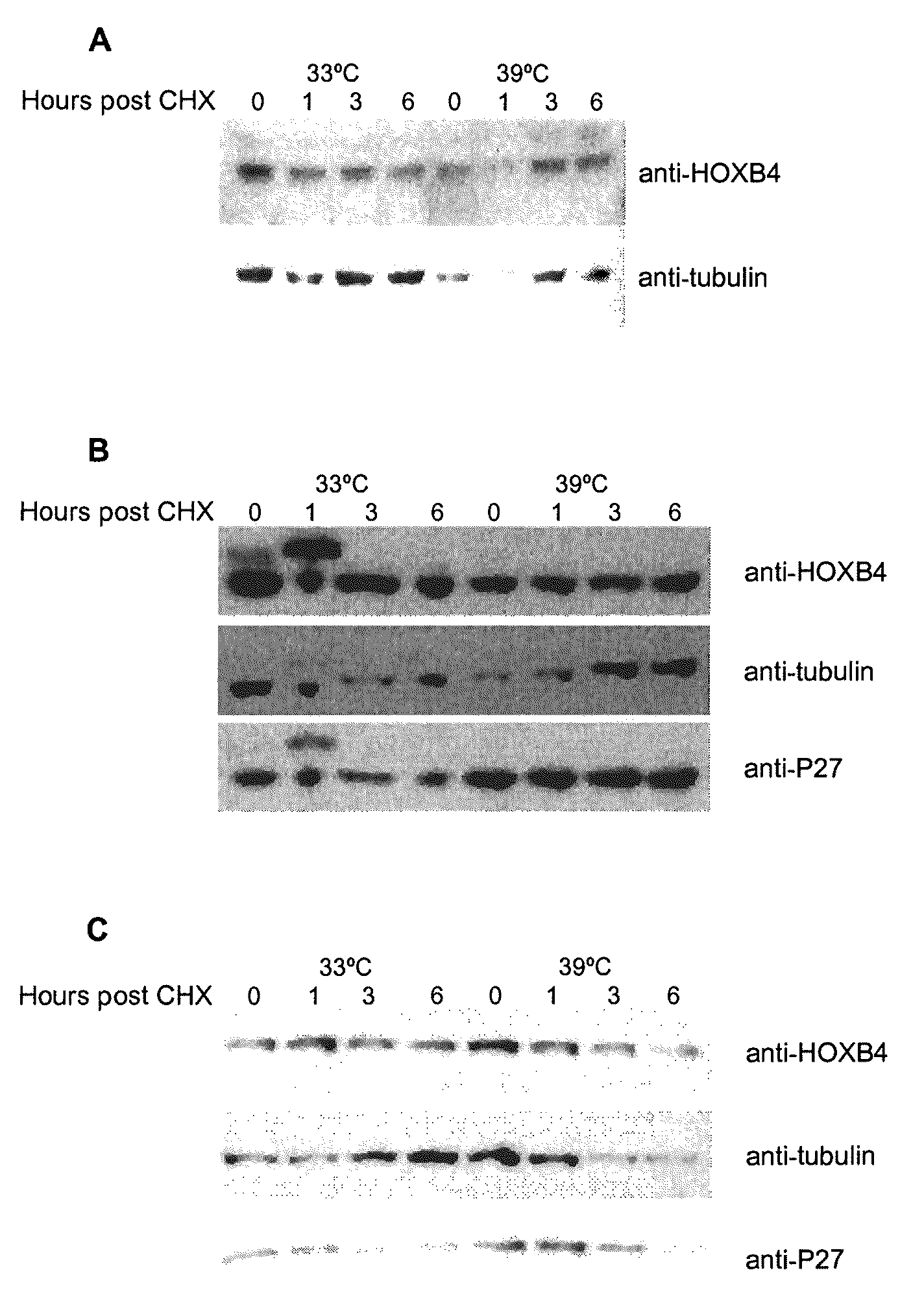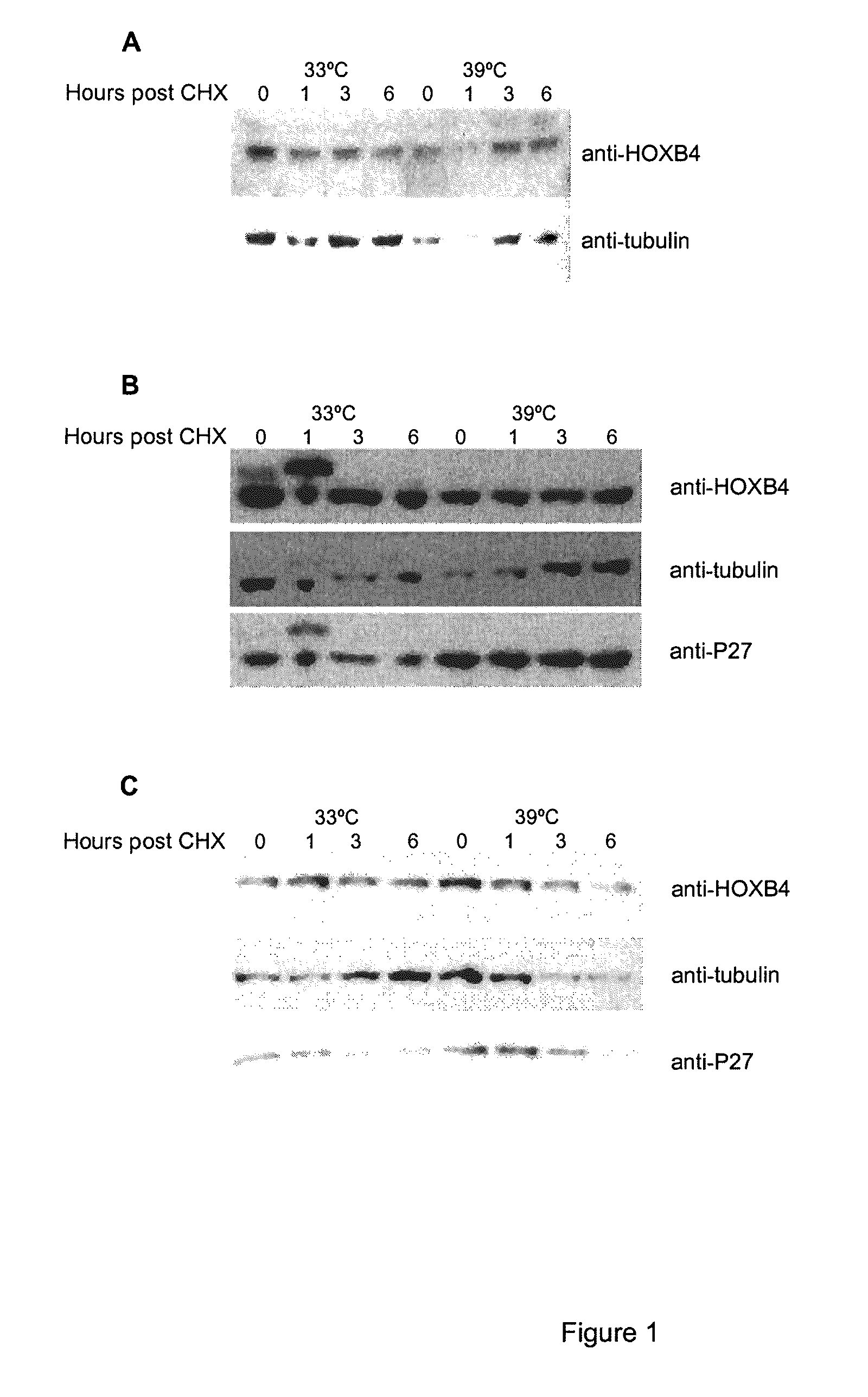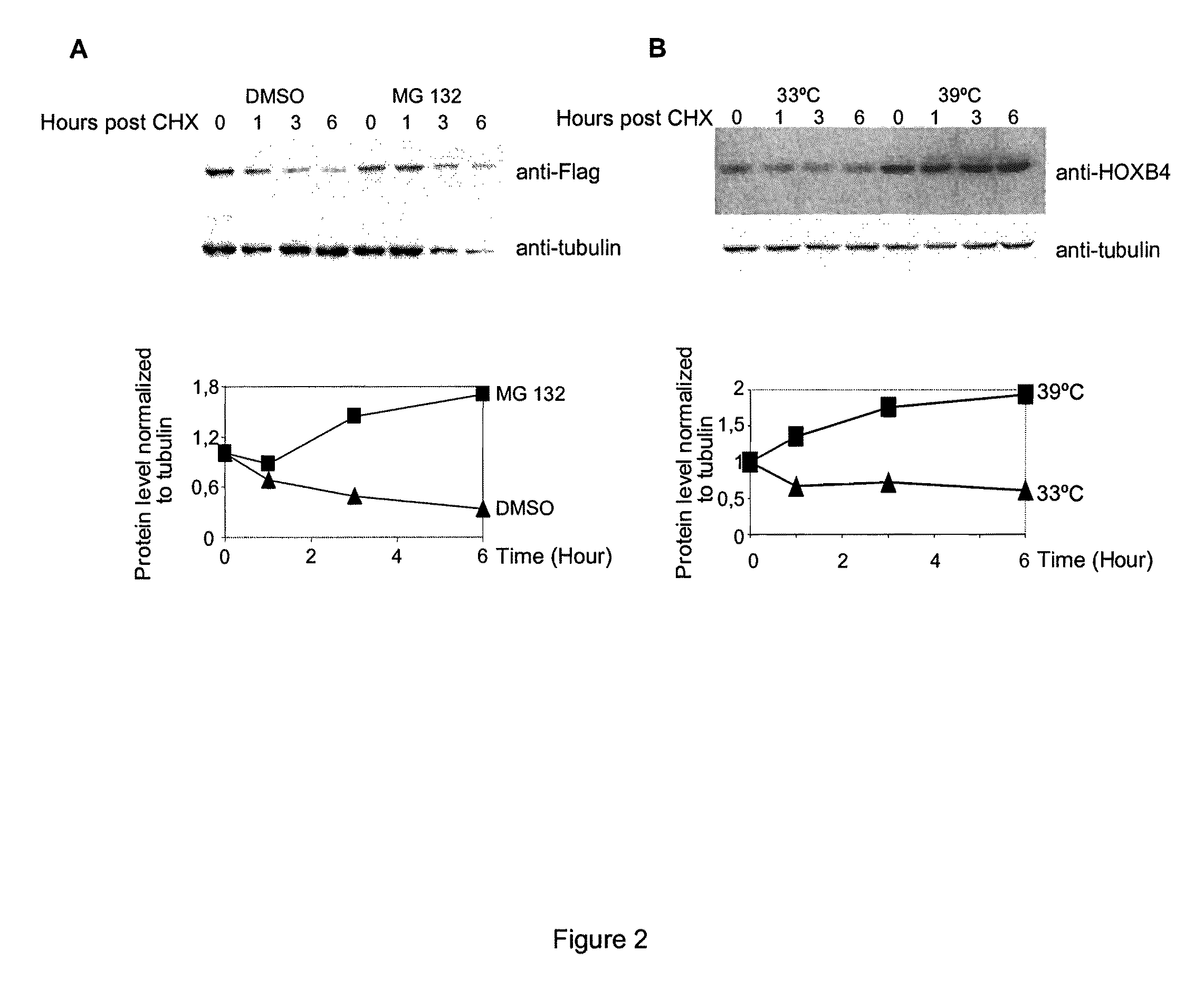Mutated hoxb4 proteins with improved stability, and methods of use thereof
a technology of hoxb4 and stability, applied in the direction of immunoglobulins, peptides, drugs, etc., to achieve the effect of avoiding adverse side effects and increasing the dosag
- Summary
- Abstract
- Description
- Claims
- Application Information
AI Technical Summary
Benefits of technology
Problems solved by technology
Method used
Image
Examples
example 1
Material and Methods for Examples 2-6 Below
Animals
[0096]Bone marrow donor mice (C57BI / 6Ly-pep3B×C3H / HeJ)F1 and congenic recipients (C57BI / 6J×C3H / HeJ)F1 were housed and handled in accordance with the guidelines of the Clinical Research Institute of Montreal.
Retroviral Vectors
[0097]Generation of the MSCV-IRES-GFP (No 728), MSCV-HOXB4-IRES-GFP (No 812) were described previously (Beslu, 2004). To generate MSCV-HOXB4-FLAG-IRES-GFP cDNA HOXB4-FLAG was subcloned from MSCV-HOXB4-FLAG-PGK-neo (830) in MSCV-IRES-GFP upstream of the IRES (No 1171).
[0098]Deletion of the 31 N-terminal amino acids was generated by replacing the 5′ 105 bp EcoRI-SmaI fragment of HOXB4 cDNA with an oligonucleotide containing a Kozac sequence and ATG, and the sequences were verified by sequencing. In practice, 35 amino acids in the N-terminal region were thus deleted.
[0099]HOXA9 cDNA was subcloned upstream and in frame of FLAG epitope in pCMV-Tag expression vector (Stratagene, La Jolla, Calif.). Fusion protein compri...
example 2
The Ubiquitin-Proteasome Pathway Degrades HOXB4 Protein
[0110]It has been previously shown that HOXB4 has a high turnover rate (Krosl, 2003, Beslu, 2004). In order to identify mechanisms implicated in HOXB4 degradation, Flag tagged HOXB4 was expressed by retroviral infection in Baf / 3 hematopoietic cell line. The effect of a proteasome inhibitor, MG132, on the half-life of ectopic HOXB4 was first evaluated after shutting off protein synthesis with cycloheximide. As shown in FIG. 1A, in absence of MG132, the half-life of HOXB4 protein is around 1 hour, in sharp contrast, addition of MG132 to the media prolonged HOXB4 protein levels in Baf / 3 cells for greater than 6 hours. This result suggests that HOXB4 protein is degraded by the proteasome.
[0111]Although most proteasomal substrates must be ubiquitinated before being degraded, there are some exceptions to this general rule, especially when the proteasome plays a normal role in the post-translational processing of the protein. The prote...
example 3
Generation of a More Stable HOXB4 Protein
[0114]In order to get more insight into the HOXB4 protein regulation sequence, alignment analyses were performed, which revealed that in addition to the homeodomain per se, the 31 N-terminal amino acid region is also highly conserved among members of the 4th paralog (FIG. 3A). Moreover, this segment is conserved through evolution, as shown by protein sequence similarities between HOXB4 and Deformed (Dfd), its fly homologue (FIG. 3B).
[0115]To further study the role of the HOXB4 N-terminal region, these 31 amino acids were deleted (FIG. 4A) and wild type HOXB4 (WT) and flag tagged mutant (Δ1-31) were expressed by retroviral infection in primary bone marrow cells. Western blot performed with Flag antibody revealed that the deleted form of HOXB4 protein is expressed at higher level than wild type protein (FIG. 4B), this phenomenon was observed also in different cell lines like Baf / 3, Cos, HEK293T. The half-life of both proteins was then evaluated...
PUM
| Property | Measurement | Unit |
|---|---|---|
| temperature | aaaaa | aaaaa |
| temperature | aaaaa | aaaaa |
| temperatures | aaaaa | aaaaa |
Abstract
Description
Claims
Application Information
 Login to View More
Login to View More - R&D
- Intellectual Property
- Life Sciences
- Materials
- Tech Scout
- Unparalleled Data Quality
- Higher Quality Content
- 60% Fewer Hallucinations
Browse by: Latest US Patents, China's latest patents, Technical Efficacy Thesaurus, Application Domain, Technology Topic, Popular Technical Reports.
© 2025 PatSnap. All rights reserved.Legal|Privacy policy|Modern Slavery Act Transparency Statement|Sitemap|About US| Contact US: help@patsnap.com



